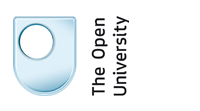

| :: | Simon Holland |
| : | Research Students |
Research Themes
Projects
Harmony Space
Research Grants
Awards
Publications
Non-Print
Research Students
Visitors/ Interns
PhD Topics
Teaching
Resources
Contact
Site Map
The Music Computing Lab
Graduated PhD Students
Allan Seago
PhD 2010 ‘New User Interfaces for Musical Timbre’.The user interface of most synthesisers tends to be expressed in system (i.e. engineering) terminology, obliging the user to become fluent with the synthesis method employed. This causes problems for many users.The New User Interfaces for Musical Timbre Design Project involves the design, implementation , and evaluation of a prototype of a new kind of user interface for controlling musical timbre that addresses this problem in a principled way.
Patrick Hill
PhD 2007 ‘Aspect Oriented Music Representation(AOMR)’.AOMR investigates ways in which Aspect Oriented Programming (AOP) and Multi-Dimensional Separation of Concerns (MDSOC) approaches can be applied to the organization of musical materials for the purposes of music composition and musical analysis.
Martina Wilson
PhD 2002 ‘The Use of Electronic Media in Teaching’.Ian Kelly
PhD 2002 ‘An Evolutionary Design Interaction Approach to Computer Aided Colour Design’.John Cook
PhD 1998 ‘Knowledge Mentoring Framework for Supporting Musical Composition Learning‘.A theoretical framework, called the Knowledge Mentoring framework (KMf), was developed to investigate how studies of dialogue and interaction can be exploited in a practical way by designers of computer-based teaching agents. The KMf provides a taxonomy and definitions of the pedagogical goals involved in a 'mentoring' style of teaching. Mentoring is an approach to teaching that aims to support learners' creative, metacognitive and critical thinking, these being essential to musical composition and other open-ended, problem-seeking domains.
Knowledge Mentoring for Supporting Musical Composition Learning
Matt Smith
PhD 1995 ‘Artificial Intelligence, Melody and Education'.Smith’s constraint-based learning tool MOTIVE is designed to support beginners to explore the composition of melody. In order to achieve this aim, Smith developed an engine within MOTIVE which remains the most complete computational model of Narmour’s (1989) cognitive theory of melody, Artificial Intelligence, Melody and EducationArtificial Intelligence, Melody and Education